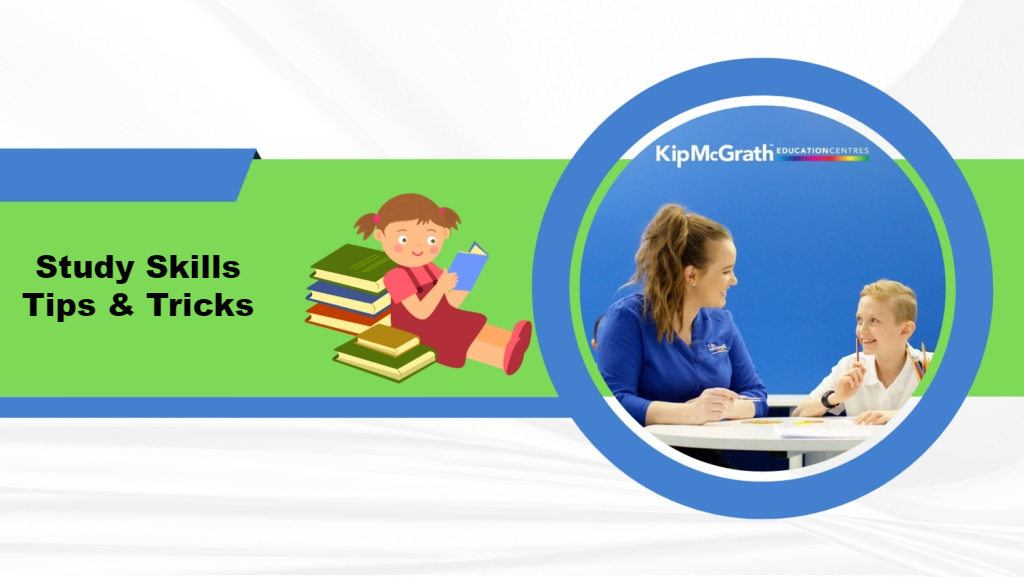We are more than just traditional grinds.

Your journey of education requires more than just attending classes and passively absorbing information. To truly succeed academically, one must cultivate effective study skills that enhance learning, retention, and understanding. In this blog, we will explore some Kip McGrath tips and tricks that can pave the way for academic excellence.
- Time Management:
Effective time management is the cornerstone of successful study habits. Creating a realistic and organised study schedule helps in allocating time for each subject, reducing procrastination, and maintaining a healthy work-life balance. Tools like calendars, planners, or productivity apps can aid in creating a structured study routine. Some students need a teacher to guide them through this process, something we are very experienced at doing!
- Active Reading:
Reading is a fundamental skill, but active reading takes it a step further. Engage with the material by asking questions, summarising key points, and making connections to real-world examples. Utilise tools such as highlighters, annotations, and note-taking to reinforce your understanding and make the information more memorable. Our Study Skills Programme deals with this skill in detail.
- Note-taking Techniques:
Taking good notes is an art that significantly contributes to effective studying. Experiment with various note-taking techniques, such as the Cornell method, mind mapping, or the outline method, to find what works best for you. Organised and concise notes serve as valuable study aids when reviewing for exams or writing assignments.
- Effective Organisation:
Maintain a well-organised study environment, both physically and digitally. Keep your study space clutter-free, with all necessary materials within reach. Utilise folders, binders, or digital tools to organise class notes, handouts, and reference materials. An organised workspace promotes focus and reduces distractions.
- Active Learning Strategies:
Engage in active learning to enhance your understanding and retention of information. Instead of passively reading or listening, participate in discussions, create flashcards, teach concepts to others, or use interactive online resources. Active learning not only reinforces your knowledge but also makes studying a more dynamic and enjoyable experience.
- Breaks and Rest:
Avoid the temptation to study for long, uninterrupted periods. Breaks are crucial for maintaining focus and preventing burnout. Follow the Pomodoro Technique, which involves studying for 25 minutes, followed by a 5-minute break. Regular breaks refresh your mind and improve overall productivity.
- Goal Setting:
Set clear and realistic academic goals to guide your study sessions. Break down larger tasks into smaller, manageable goals. Celebrate achievements along the way, and reassess your goals periodically to ensure they align with your academic progress and personal aspirations. Our Study Skills Programme has a dedicated section on this process.
- Utilise Resources:
Take advantage of available resources, including textbooks, online materials, tutoring services, and study groups. Collaborating with peers can provide new perspectives, clarify doubts, and foster a supportive learning environment. Don’t hesitate to seek help when needed, as understanding the material thoroughly is crucial for success. Of course, all our teachers are experienced in guiding a student through with individual support.
Mastering study skills is an ongoing process that evolves with each academic journey. By incorporating effective time management, active learning, and organisation into your routine, you can unlock your full academic potential. If you have any questions, your fully qualified Kip McGrath tutor is ready to help!
